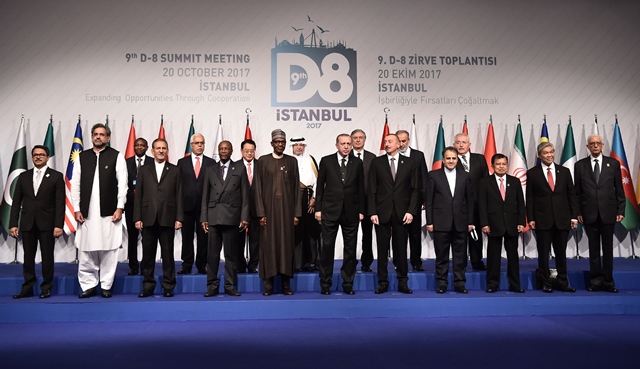
Addressing the 9th D-8 Organisation for Economic Cooperation summit in Istanbul, Prime Minister Shahid Khaqan Abbasi said Pakistan confronted many challenges over the decade but as a result of a comprehensive strategy and unwavering resolve, the nation had successfully turned the tide.
"Connectivity-led growth is a good example of South-South cooperation. We seek similar partnerships with D-8 member states – through road and rail routes, where possible, but also through stronger air and sea connections," Abbasi told the opening session of the summit.
PM Abbasi to hand over D-8 chairmanship to Turkey today
“The CPEC will put our economy on an upward trajectory of robust growth. We are also working on energy connectivity projects. Pakistan's integration into the Eurasian Belt and Road network will provide a firm foundation for Pakistan's rapid economic development," he added.
At the outset of the summit, Pakistan handed over to Turkey the chair of the organisation that is comprised of eight developing nations since 2012. The theme of the 2017 summit is ‘Expanding Opportunities through Cooperation’.
Abbasi appreciated the theme chosen by Turkey, and said it was in complete harmony with the post-2017 development agenda, visualising sustainable development as one of the core elements of people-centric development.
Army chief has right to comment on economy: PM Abbasi
"Indeed, shared and joint prosperity is the only form of secure and sustainable prosperity,” the prime minister told leaders from the developing world. “Inclusion based on collaboration ensures that there are no losers in the development effort – all are winners."
Abbasi said Pakistan confronted many challenges over the last decade. "We faced unrelenting terrorism emanating from instability in our neighbourhood and the environment in the region and beyond." However, he stressed, the country had successfully turned the tide.
"Improved security has led to economic recovery. Pakistan's economy has recorded a significant revival in the past four years. Over this time, we have focused on upgrading our communications and energy infrastructure, and enhancing regional connectivity," he said.
Pakistan assumed the chair of the D-8 in November 2012 at the eighth summit in Islamabad. At that summit, two landmark documents were adopted – the D-8 Charter and the Global Vision. “These documents have provided the essential basis for our joint endeavours,” Abbasi said.
“As chair, Pakistan made every effort to proactively lead the organisation towards the realisation of its objectives and vision. It was a privilege for us to host the summit meeting, two sessions of the council and four sessions of the D-8 commission and a number of sectoral meetings,” he added.
Another significant milestone achieved during this period was the observer status for D-8 at the United Nations, he said. “This status enabled the organisation to closely interact with various UN agencies and affiliated institutions for cooperative arrangements in priority areas for us.”
Abbasi said that the organisation was established 20 years ago to promote cooperation in the key areas of agriculture, industry, SMEs, trade, transportation, energy and tourism but the progress achieved so far fell short of expectations.
PM Abbasi heads to New York to represent Pakistan at UN
Stressing the need for measures to accelerate momentum for stronger partnership, he said, “This summit provides a good opportunity for us to identify and remove the impediments in the way of achieving the organisation's objectives.”
The prime minister pointed towards the stagnation of intra D-8 trade and expressed his apprehension that the target of $500 billion trade in 2018, envisaged in the 2008 Kuala Lumpur summit roadmap, might remain elusive.
"It is, therefore, important for us to fully implement various instruments and agreements aimed at facilitating trade amongst member states, especially those related to preferential trade, small and medium enterprises, customs, simplification of visa matters and civil aviation," he said.
The prime minister said the sectoral meetings at the ministerial level had already chalked out roadmaps, and it was time to start their implementation. “There may be challenges but there are also opportunities like never before,” he said, calling for promoting entrepreneurship.
The prime minister welcomed President Erdogan as the D-8’s incoming chair. “I am confident that your wisdom, sagacity, dynamism and firm commitment will bring new vigour to the D-8 Organisation for Economic Cooperation," he said.
Erdogan also addressed the opening session and spoke on various challenges faced by the Muslim world in general and by the member states in particular in different spheres of life, including the economic development.
The summit was also attended by Nigerian President Muhammadu Buhari, Azerbaijani leader Ilham Aliyev, Iran's First Vice President Eshaq Jahangiri and Vice President of Indonesia Jusuf Kalla.





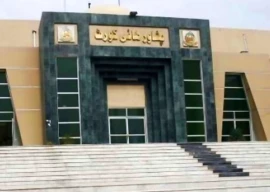
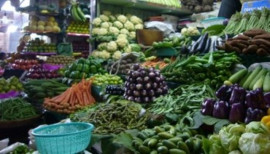
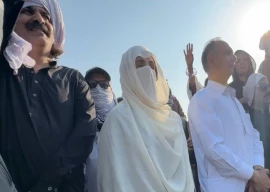
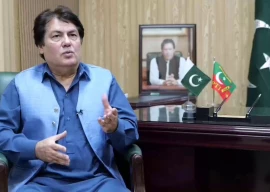

1732643921-0/4548774-1403918848-(1)1732643921-0-270x192.webp)






COMMENTS (1)
Comments are moderated and generally will be posted if they are on-topic and not abusive.
For more information, please see our Comments FAQ